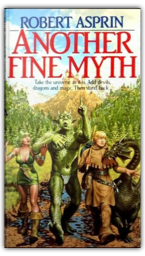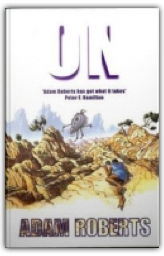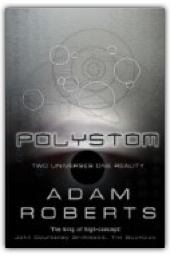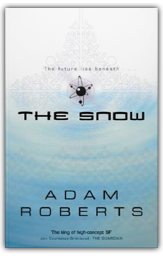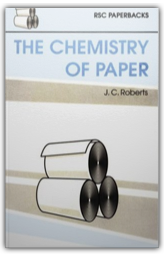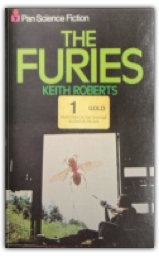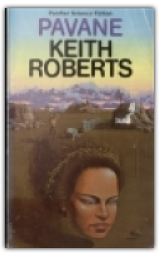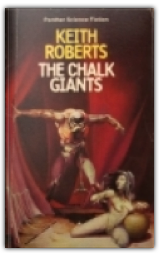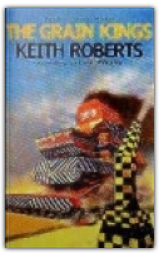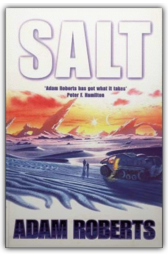 Salt
Adam Roberts
Salt
Adam Roberts
The publishers of Salt, the debut SF novel by a British author, compare it to Frank Herbert's Dune—and certainly the harsh beauty of the planet Salt makes arid Dune seem cosy and lush. Here are great deadly deserts of salt-crystal dunes, "seas" that are supersaturated lakes scummed over with hard salt, free chlorine in the air, inedible salt algae, a corrosive wind called the Devil's Whisper and a sleet of cancer-spawning radiation from the sky ...
Ill-assorted groups of Earth colonists were lured across space by misleading survey reports—or did Salt change during the long voyage? They build their makeshift cities around the salt lakes, struggling to tame this dreadful world. Unfortunately two of the settlements are desperately incompatible, hardly able even to communicate. Senaar city has a rigid, disciplined hierarchy with every person in their place, ordered like atoms in crystalline salt; Als is a leaderless anarchy where anyone might tackle any job, all as fluid as seawater. (Yes, Roberts loves salty metaphors.)
The viewpoint alternates between Petja of Als and Senaar's leader, Barlei, whose non-communication escalates into a war for which Senaar has been prepared all along—although Barlei has hypocritical justifications for everything, including oppression of his own people and Orwellian rewriting of history. Meanwhile, against all his Alsist principles, the gentler, poetic Petja hardens into a charismatic terrorist leader. Their entwined stories are grim, sad and bitter as salt. (Roberts does sometimes overdo the metaphors.) Salt is a skilful, intense, gloomy novel. —David Langford
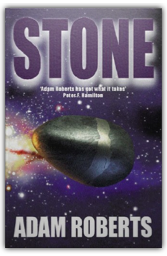 Stone
Adam Roberts
Stone
Adam Roberts
Stone is Adam Roberts' third SF novel following Salt and On—all three independent and very different from each other. His psychopathic narrator tells the story of his life and crimes to—for special personal reasons—a stone...
Ae's narrative begins in an uncrackable prison inside a star where he's been jailed for his latest murder. Indeed he's the only living murderer in humanity's vast interstellar utopia, the "t'T". A voice in his head offers freedom and wealth if he'll perform one little chore: murdering an entire planetary population of over 60 million people without destroying the planet.
It's a tough proposition, since t'T people are crammed with "dotTech" nanomachines that extend life, repel disease, and repair fatal injuries. Nevertheless Ae escapes from the star-jail with heavy technomagical assistance, has good and bad times (and kills again) on various worlds, and acquires a carefully hidden info-chip loaded with cutting-edge physics. With this armoury, planetary murder becomes possible. Just take 12 smallish stones...
What baffles Ae is the mystery of who's employing him. Could one of the galaxy's other harmless-seeming human societies be launching war on the t'T? The answer is much stranger and connects with Ae's repeated musings on quantum mechanics as he follows his destiny. Other weird science appears: for example, t'T space is divided by the Trench, a mysterious zone 1,000 light years long where gravity reaches fatal extremes, but there's no mass to account for it.
Like Roberts' previous SF novels, it's an odd and offbeat mixture. Chilling insight into Ae's psychology mingles with flamboyantly space-operatic gadgetry. Though intriguing and inventive, Stone promises more than it ultimately delivers. —David Langford
|
 Salt
Adam Roberts
Salt
Adam Roberts
 Stone
Adam Roberts
Stone
Adam Roberts
 Made with Delicious Library
Made with Delicious Library
